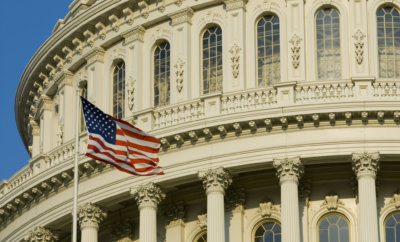India
Indian Ambassador to U.S Criticizes Foreign Media Over Portrayal of India

Indian Ambassador to U.S, Navtej Singh Sarna
Photo: Wikimedia Commons
There is a tendency among foreign journalists based in India to pick up exception stories instead of development news, Navtej Singh Sarna said.
There is a tendency among foreign journalists based in India to pick up exception stories instead of development news, Navtej Singh Sarna, the Indian Ambassador to United States, said, accusing foreign media of negatively portraying the country. Sarna was speaking during a panel discussion in the opening session of the “U.S & India: From Estranged Democracies to Natural Allies” organized by American think-tank Center for Strategic and International Studies on May 14.
“Now, it is more a case of pity than worry. India has moved on, you haven’t,” Sarna said when asked about the portrayal of India in mainstream media, PTI reported. “There is a tendency to look at the social exception there is a dowry case, there is a caste issue, so pick it up and splash it. But if there is a start-up story for instance (they will say) that happens everywhere. Frankly it bothers me, but I do not loose sleep over it anymore- I used to (worry),” the Indian diplomat said.
Saying that the American media was doing “injustice” to its public, he added: “These (negative) pieces just sound like oddities. They show the narrow mindset of the journalists, of the editor and marginalize them rather than marginalize us anymore. If they (the American media) want to survive and remain relevant, they should move on.”
He further said that he tried correcting the perspective in his previous four-year stint at the Indian embassy when he was the spokesperson, but concluded that it failed miserably. “It is extremely important for us, but I think it’s important for the United States as well to get a correct picture of, even if I was not in India and I would say of a very important country in the world. Unfortunately, can’t tell you, I can guess at the reasons,” he said.
The event was held to mark the 20th anniversary of the Indian nuclear tests — Pokhran-II — held in May 1998. Sarna went on to talk about how the nuclear tests invited sanctions from the United States and how the two countries built their relationship from there. He pointed out that two major developments helped the relationship between India and the United States — the 9/11 terror attack and the Y2K bug .
“Those were the days of Y2K and suddenly Indian computer engineers began to solve problems and actually set things right all over the United States. And we went up in respect. The diaspora had become about one and a half million and was beginning to be heard not only in companies and in hospitals but also on the Hill. So that’s where it all began,” he was quoted as saying.
The Y2K bug was a problem in the coding of computerized systems that was projected to create havoc in computers and computer networks around the world in early 2000.
The tragedy of 9/11 brought the two countries closer, as India “had known terrorism and cross-border terrorism and the evils of terrorism for the last three decades before that,” Sarna said.
“We are at a time when President Trump can declare that the relationship between India and U.S has never been stronger, has never been better; that we can be designated as a major defense partner by the United States; that we can be actually conducting more military exercises with the United States done with any other country,” he added. “And a four million strong Indian American community getting stronger in political terms, besides the economic terms.”




You must be logged in to post a comment Login